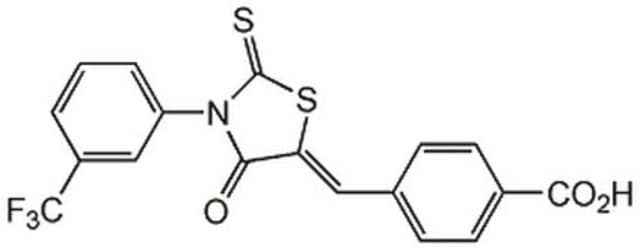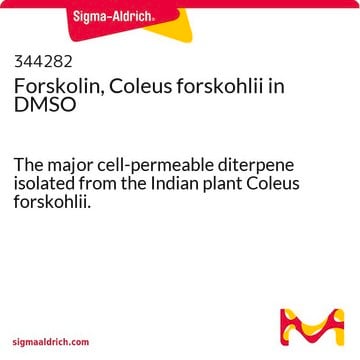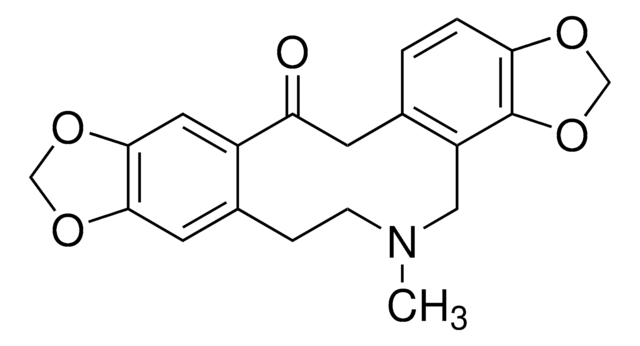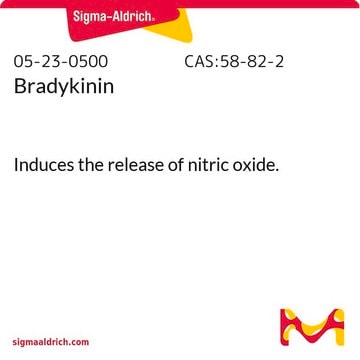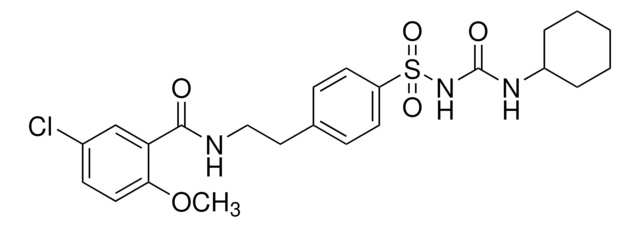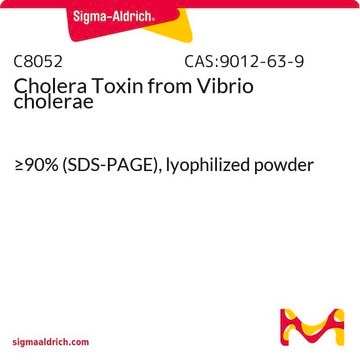C2992
CFTR Inhibitor-172
≥98% (HPLC), powder, CFTR inhibitor
Synonym(s):
5-[(4-Carboxyphenyl)methylene]-2-thioxo-3-[(3-trifluoromethyl)phenyl-4-thiazolidinone
About This Item
Recommended Products
Product Name
CFTR(inh)-172, ≥98% (HPLC), powder
Quality Level
Assay
≥98% (HPLC)
form
powder
color
yellow
solubility
DMSO: ≥10 mg/mL
H2O: insoluble
storage temp.
2-8°C
SMILES string
OC(=O)c1ccc(cc1)\C=C2\SC(=S)N(C2=O)c3cccc(c3)C(F)(F)F
InChI
1S/C18H10F3NO3S2/c19-18(20,21)12-2-1-3-13(9-12)22-15(23)14(27-17(22)26)8-10-4-6-11(7-5-10)16(24)25/h1-9H,(H,24,25)/b14-8+
InChI key
JIMHYXZZCWVCMI-RIYZIHGNSA-N
Application
Biochem/physiol Actions
related product
Storage Class Code
11 - Combustible Solids
WGK
WGK 3
Personal Protective Equipment
Choose from one of the most recent versions:
Certificates of Analysis (COA)
Don't see the Right Version?
If you require a particular version, you can look up a specific certificate by the Lot or Batch number.
Already Own This Product?
Find documentation for the products that you have recently purchased in the Document Library.
Customers Also Viewed
Our team of scientists has experience in all areas of research including Life Science, Material Science, Chemical Synthesis, Chromatography, Analytical and many others.
Contact Technical Service
